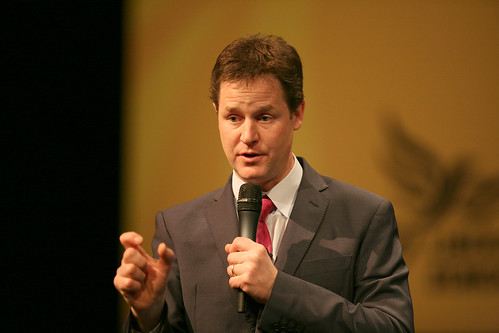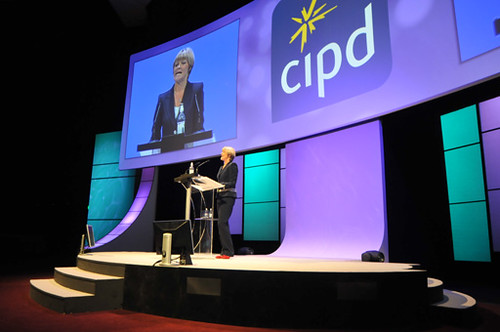
Culture
-
 Fake Monet and Renoir paintings detected on eBay using AI
Up to 40 counterfeit paintings, including alleged works by Monet and Renoir, have been identified for sale on eBay, according to research conducted by Dr. Carina Popovici, an expertRead More...
Fake Monet and Renoir paintings detected on eBay using AI
Up to 40 counterfeit paintings, including alleged works by Monet and Renoir, have been identified for sale on eBay, according to research conducted by Dr. Carina Popovici, an expertRead More... -
 Pippa Middleton and James Matthews unveil lodge at Bucklebury Farm
Pippa Middleton and her billionaire husband James Matthews have inaugurated the lodge at Bucklebury Farm Park in Berkshire, offering a venue for parties, events, and Pilates sessions.Read More...
Pippa Middleton and James Matthews unveil lodge at Bucklebury Farm
Pippa Middleton and her billionaire husband James Matthews have inaugurated the lodge at Bucklebury Farm Park in Berkshire, offering a venue for parties, events, and Pilates sessions.Read More... -
 Five British museums nominated for prestigious arts prize
Museums across Skipton, Dundee, Manchester, and London are vying for the esteemed title of Museum of the Year 2024.Read More...
Five British museums nominated for prestigious arts prize
Museums across Skipton, Dundee, Manchester, and London are vying for the esteemed title of Museum of the Year 2024.Read More... -
 Gustav Klimt portrait sells for £25.7 million at Vienna auction
A long-lost portrait by Gustav Klimt, depicting a young woman, fetched a staggering 30 million euros (£25.7 million) at an auction held in Vienna on Wednesday.Read More...
Gustav Klimt portrait sells for £25.7 million at Vienna auction
A long-lost portrait by Gustav Klimt, depicting a young woman, fetched a staggering 30 million euros (£25.7 million) at an auction held in Vienna on Wednesday.Read More... -
 Rishi Sunak: remembering those lost in terror attack
In his Passover message to the Jewish community, Prime Minister Rishi Sunak acknowledges the somber reality that "for too many families, there will be empty seats" at the Seder table thisRead More...
Rishi Sunak: remembering those lost in terror attack
In his Passover message to the Jewish community, Prime Minister Rishi Sunak acknowledges the somber reality that "for too many families, there will be empty seats" at the Seder table thisRead More... -
 Co-op Live: Manchester's new arena opens with high capacity and ambitions
A monumental addition to Manchester's entertainment landscape, the new £365m Co-op Live arena is poised to claim the title of the largest indoor arena in the UK. Nestled beside ManchesterRead More...
Co-op Live: Manchester's new arena opens with high capacity and ambitions
A monumental addition to Manchester's entertainment landscape, the new £365m Co-op Live arena is poised to claim the title of the largest indoor arena in the UK. Nestled beside ManchesterRead More... -
 Brontë birthplace unveils open day prior to renovation
The birthplace of the renowned Brontë sisters is set to welcome visitors for a special glimpse inside before embarking on a significant refurbishment.Read More...
Brontë birthplace unveils open day prior to renovation
The birthplace of the renowned Brontë sisters is set to welcome visitors for a special glimpse inside before embarking on a significant refurbishment.Read More... -
 Taylor Swift's 'The Tortured Poets Department' smashes Spotify record
Taylor Swift's latest album, "The Tortured Poets Department," has shattered Spotify's record for the most-streamed album in a single day, the platform has announced. Not only did Swift'sRead More...
Taylor Swift's 'The Tortured Poets Department' smashes Spotify record
Taylor Swift's latest album, "The Tortured Poets Department," has shattered Spotify's record for the most-streamed album in a single day, the platform has announced. Not only did Swift'sRead More... -
 Historic London pub, linked to Royalty, ravaged by fire: a heartbreaking loss
A renowned London pub, steeped in history dating back possibly to the 16th century, has suffered extensive damage in a devastating fire. The Burn Bullock, a grade II-listed establishmentRead More...
Historic London pub, linked to Royalty, ravaged by fire: a heartbreaking loss
A renowned London pub, steeped in history dating back possibly to the 16th century, has suffered extensive damage in a devastating fire. The Burn Bullock, a grade II-listed establishmentRead More... -
 Salvator Rosa painting stolen from Oxford, recovered in Romania, and returned to UK
A painting valued at EUR 2 million, stolen from an art gallery at Oxford University approximately four years ago, has been recovered in Romania and returned to UK judicial authorities,Read More...
Salvator Rosa painting stolen from Oxford, recovered in Romania, and returned to UK
A painting valued at EUR 2 million, stolen from an art gallery at Oxford University approximately four years ago, has been recovered in Romania and returned to UK judicial authorities,Read More... -
 Plans to demolish former Museum of London site put on pause
A last-minute intervention from Levelling Up Secretary Michael Gove has halted plans to demolish the former Museum of London site.Read More...
Plans to demolish former Museum of London site put on pause
A last-minute intervention from Levelling Up Secretary Michael Gove has halted plans to demolish the former Museum of London site.Read More... -
 June’s London Fashion Week returns with fresh concept
The British Fashion Council has unveiled an innovative approach for the upcoming London Fashion Week in June, aiming to spark a cultural phenomenon. Set to take place fromRead More...
June’s London Fashion Week returns with fresh concept
The British Fashion Council has unveiled an innovative approach for the upcoming London Fashion Week in June, aiming to spark a cultural phenomenon. Set to take place fromRead More... -
 London's inaugural Taiwanese culture festival explores island's identity and history
London's vibrant Notting Hill district is about to experience a taste of Taiwanese culture with the launch of the 16-day Taiwan Festival on Friday, April 12.Read More...
London's inaugural Taiwanese culture festival explores island's identity and history
London's vibrant Notting Hill district is about to experience a taste of Taiwanese culture with the launch of the 16-day Taiwan Festival on Friday, April 12.Read More...

British Queen celebrates
Most Read
- Teen held after US woman killed in London stabbings
- Heave-ho Harry! Prince prepares to join the walking wounded in ice trek to North Pole
- Football: Farhad Moshiri adamant Everton deal above board
- "Master of English Style". Interview with Designer Lydia Dart
- Letter to the Financial Times from Lord Mayor Alderman Michael Bear
UK news

The bank holiday weekend is set to be a washout, with wind and rain threatening to ruin music festivals, sporting events and trips to the coast.
After a blisteringly hot spell last weekend, forecasters are predicting that areas of low pressure will sweep in from the west, bringing wet weather and much lower temperatures.
To add to travellers' misery, the AA reported that those who take to the road will have to contend with rapidly-rising petrol prices.
Weather-wise, the late August bank holiday is mirroring the Jubilee bank holiday weekend in June, when rain hit many street parties as well as the spectacular Thames river pageant.
Just as now, the Jubilee weekend had followed very warm weather the week before. Last weekend, temperatures as high as 32C (90F) were recorded, but the thermometer is not expected to struggle beyond 20C (68F) over the bank holiday weekend.
"Last week's hot weather is being shoved aside rather rudely by a succession of areas of low pressure coming in from the west," said Paul Knightley, a senior forecaster with the Press Association's weather company, MeteoGroup.
He said rain would hit Wales and south-west England on Friday, while southern England could expect showers and longer periods of rain on Saturday.

Apple on Monday dethroned longtime rival Microsoft as the most valuable company in history based on the value of its stock, which climbed to approximately $622 billion.

The diplomatic row between the UK and Ecuador over WikiLeaks founder Julian Assange has deepened after the Foreign Office said the Government would seek to extradite him even if he is granted political asylum by the South American nation.
The Ecuadorian authorities have accused the Government of threatening to enter its embassy in London to seize Mr Assange, who faces sexual assault charges in Sweden.
A Foreign Office spokeswoman said the UK had a legal duty to extradite Mr Assange and that would not change if he was granted political asylum.
She said: "It does not change our position. Our legal position is not changing at all.

Sir Richard Branson has threatened to walk away from the rail industry after Virgin Rail lost its West Coast main line franchise to rival transport company FirstGroup.
Sir Richard said he was "extremely disappointed" that the Department for Transport (DfT) had preferred FirstGroup to Virgin which had run the London to Scotland West Coast line since 1997, adding: "Based on the current flawed system, it is extremely unlikely that we would bid again for a franchise."
FirstGroup, which already runs a number of franchises including Great Western and ScotRail promised cheaper fares, more services and improved stations. But Sir Richard said bankruptcy had hit former East Coast main line operators GNER and National Express who had "overbid" for the East Coast franchise.
Sir Richard added that this was the fourth time Virgin had been outbid in a franchise tender process. He went on: "On the past three occasions, the winning operator has come nowhere close to delivering their promised plans and revenue, and has let the public and country down dramatically
"GNER and National Express over promised in order to win the franchise and spectacularly ran into financial difficulties in trying to deliver their plans. The East Coast is still in Government ownership and its service is outdated and underinvested, costing passengers and the country dearly as a result. Insanity is doing the same thing over and over again and expecting different results. When will the Department for Transport learn?"
FirstGroup will take over the West Coast line on December 9, with the franchise running for 13 years and four months. The DfT said the franchise deal was worth £5.5 billion over the lifetime of the contract.

A couple who claimed the massive £148.6 million EuroMillions jackpot are expected to tell of their plans for the future as they celebrate their win.
It was revealed on Monday that the pair were from the town of Haverhill in Suffolk, but their identity has been kept a closely guarded secret.
They are due to go public when they accept their super-sized cheque, which will make them the nation's second richest lottery winners.
The staggering sum - of £148,656,000 - is just behind the £161 million landed by Colin and Chris Weir, from Largs in North Ayrshire, last July.
A difference in the exchange rate means this week's jackpot was slightly lower.
The couple were the only winners in Friday's draw.

Police chiefs will have to make "very difficult decisions" as cuts bite in the wake of the Olympics, the National Olympic security coordinator said.
Met Assistant Commissioner Chris Allison asked chief constables around the country to delay cutting specialist officers until after the Games.
Forces have been told to cut millions from their budgets and chief constable of West Yorkshire Police Sir Norman Bettison warned last week that any further cutbacks would leave officers unable to cope with a repeat of last year's riots.
It also emerged that Devon and Cornwall Police did not pursue more than 36,000 cases reported to them, representing 40% of all crime files, due to budget cuts.
Mr Allison said: "When the comprehensive spending review was announced a couple of years ago we were told we would have to reduce policing costs by 20% over a four year period.
"Thankfully I've been fantastically supported by my chief constable colleagues up and down the country because I asked them to delay any cuts in specialists until after the Games because I needed those specialists to deliver the Games, and we've been able to deliver what I think has been a fantastic event.
"But those cuts are starting to bite, they're starting to hit the service and nationally chief constables are having to make some very difficult decisions about what they're going to stop doing to ensure that they live within the budget that's now been given to them.

David Cameron has warned there must be "a big cultural change" towards sport in schools if Britain is to capitalise on the Olympic success of Team GB.
The Prime Minister called for a return to the "competitive ethos" in school sports and he hit out at teachers who were unwilling to play their part in coaching and mentoring young talent.
He said that while the Government is investing £1 billion in school sports over the next four years, more needed to be done if Britain was to enjoy continued sporting success in the future.
"Frankly, if the only problem was money, you'd solve this with money. The only problem isn't money," he said. "The problem has been too many schools not wanting to have competitive sport, some teachers not wanting to join in and play their part
"So if we want to have a great sporting legacy for our children - and I do - we have got to have an answer that brings the whole of society together to crack this, more competition, more competitiveness, more getting rid of the idea all must win prizes and you can't have competitive sports days.
"We need a big cultural change - a cultural change in favour of competitive sports. That's what I think really matters. And one of the answers there is making sure the sports clubs really deliver in terms of sports in our schools."
Mr Cameron said that while sport had been part of the national curriculum under the last Labour government, ministers had failed to ensure it was actively encouraged in schools.

Deputy Prime Minister Nick Clegg is set to deny splits within the coalition Government over carbon emissions reduction, as he announces a £100 million investment in energy efficiency.
Speaking to an energy conference in London's Lancaster House, Mr Clegg will say that ministers are "unreservedly committed" to helping the low-carbon sector thrive, insisting that "no-one in Government" wants to depart from the programme to decarbonise Britain's economy as part of the fight against climate change.
Mr Clegg will tell an audience of business figures that the UK is "leading from the front" in a global revolution towards cleaner sources of energy.
He will announce a £100 million contract by UK Green Investments with fund managers Equitix and SDCL to provide initial funding to encourage foreign and domestic investment in non-domestic energy efficiency.
And he will hail the announcement by recycling firm Closed Loop of a £12 million expansion of its plastics purification plant in Dagenham, east London, which is expected to create and safeguard 100 jobs.
Many environmentalists were dismayed by Chancellor George Osborne's comment to last year's Tory conference that, while the Government would invest in green energy, "we're not going to save the planet by putting our country out of business".
And the Treasury is understood to have demanded cuts of 25% in subsidies for onshore windpower in a tussle between Mr Osborne and Liberal Democrat Energy Secretary Ed Davey, which ended last month with a 10% cut but question marks hanging over the 2030 target for decarbonising the economy.

Firms have been accused of "missing a trick" by failing to offer to help their staff manage their finances.
Three out of four are not given any support or advice to help them understand financial issues, found a survey of 2,000 workers by the Chartered Institute of Personnel and Development (CIPD).
Employers were urged to tackle the problem to combat the danger of stress and anxiety-related under-performance among staff worried about debt.
Charles Cotton, of CIPD, said: "The impact of not providing financial education can mean a workforce pre-occupied or overwhelmed by their own financial worries, and unable to appreciate the value of their organisation's pay, benefits and pensions package.
"A little financial education can go a long way. It can improve performance by giving employees the means to alleviate stress and pressure they're under because of financial difficulties.

A flagship Government scheme to kickstart the economy will be rendered obsolete when an £80 billion lending initiative kicks off, it has been claimed.
The Funding for Lending scheme, devised by the Bank of England and the Treasury, will offer money to banks on condition they pass it on to businesses and households in the form of cheaper loans and mortgages.
It was reported that the launch will effectively supersede an existing £20 billion flagship National Loan Guarantee Scheme (NLGS), also known as credit easing, to encourage banks to lend to small businesses.
Treasury officials have told bankers the scheme, unveiled in March, will be quietly abandoned although not officially axed, according to Sky News.
There are fears that the loans made available to small businesses under the Funding for Lending scheme will be less affordable than those under the credit easing scheme because there is no obligation for banks to pass on a discount from the Government.
Labour claimed that would be a further blow to Chancellor George Osborne after he announced in June that the scheme was to be extended to allow larger businesses to take part. Shadow Treasury minister Chris Leslie said: "If the National Loan Guarantee Scheme was always supposed to be replaced by the new Funding for Lending scheme, then why, two weeks after that new scheme was announced, did George Osborne say that the NLGS would be extended?"
The initiatives to boost lending to businesses and households are of critical importance to the Government's attempts to revive the economy from the longest double-dip recession in more than 50 years. The Government borrows at relatively low rates as a result of the UK's perceived safe-haven status from eurozone turmoil and it is hoping to take advantage of its low borrowing costs to stimulate the banks to lend. But there are fears that its schemes do not address the underlying problems of a lack of demand for credit in the wake of the financial crisis.




















